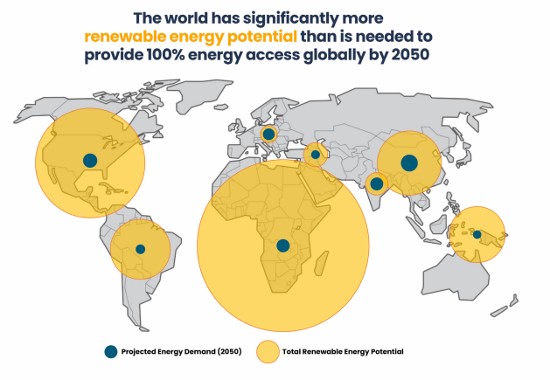A growing movement to eliminate fossil fuels is leading to the drafting of a non-proliferation treaty similar to efforts made in the past to deal with nuclear weapons. As the latter is seen as an existential threat to the planet, so today many are realizing the same is true for fossil fuels.
At the Climate Summit I attended back in April and wrote about on this blog site, Nobel laureates in medicine, physics, chemistry, economics, literature, and peace all drafted and signed a letter calling for global action to end the burning of fossil fuels.
The evolution of the actions coming out of that event has led to a call for action. Under the auspices of the United Nations and other global actors, the proposed treaty would compel nations, energy companies, and other involved interests from continuing to support the exploration for and expansion of existing fossil fuel reserves, and would provide a framework for the implementation of an orderly exit strategy that would wind down coal, oil and gas while protecting workers, communities, and investments already made that would become stranded.
In a report prepared by Drs. Sven Teske and Sarah Niklas, on behalf of the Institute for Sustainable Futures, the University of Technology Sydney, in Australia, the authors write:
“To limit warming to below 1.5 Celsius, the world not only needs to put an end to fossil fuel expansion but also needs to actively wind down production from existing coal mines and oil and gas wells. Fortunately, the world has no need for further fossil fuel production, as there is abundantly more than enough renewable energy potential worldwide to meet every person’s energy needs during this transition and ensures 100% energy access for all.”
The report’s main findings include:
- Ending fossil fuel subsidies both direct and indirect immediately. Ending existing and future fossil fuel expansion plans. Why? Because without new projects coming online emissions will be 22% too high by 2025, and 66% too high by 2030. This will make our chances of limiting global atmospheric temperature rise to 1.5 Celsius less than 50%. And if projects currently in planning come to fruition, by 2030 emissions could exceed Paris target limits by more than 120%.
- Beginning an orderly phase-out of existing fossil fuel production at a rate of decline in output by 9.5% for coal annually, 8.5% for oil, and 3.5% for gas, from now to 2030.
- The current fossil fuel supply is already exceeding demand with forecasts to 2050 predicting a fall in energy requirements as industrialized countries increase efficiencies, modernize their grid infrastructure, add distributed capacity, and move to 100% electrification.
- The fossil fuel phase-out should take into consideration principles of equity, reflect the needs and specific circumstances of each country and region, and provide the necessary support to ensure an orderly transition away from fossil fuel dependency. It should not leave anyone in the dark, because with the exception of Africa, the rest of the planet has more than enough renewable wind and solar capacity to meet future demand which is expected to decline.
- Growing renewable electricity capacity by 287% over the same period through implementing new solar, and wind projects. Renewable energy potential is more than sufficient to meet energy demands in the future by a factor of 50 if we maximize the resource. For Africa, where there is an increasing need for energy, renewables will easily fill the bill because that continent has the greatest renewable energy potential in the planet.
- Part and parcel of the planned phase-out of fossil fuels, and the growth of solar and wind renewable capacity, is the need to implement energy efficiency, emission reduction, and conservation measures that can begin immediately which include the retrofitting of older buildings, future construction to be 100% green, and 100% electrification of transportation.
What surprised me in the report is the exclusive emphasis on wind and solar renewables. There is no mention of geothermal, and other renewable energy technologies. This to me is a glaring omission. In addition, the authors do not look at negative emissions technologies like carbon capture and sequestration (CCS) even though the latest IPCC report sees the necessity of incorporating these into mitigation strategies to stay under the 1.5 Celsius cap. Instead, the authors argue that there is more than enough physical space to implement large-scale solar and wind without taking away any other types of land use or without negatively impacting ocean and freshwater locales. Hence, no need to mention any other renewable energy technologies.
The authors argue that the 1.5 Celsius cap is technically feasible, cost-effective, and
can be realized under the right political leadership and with the right policies. This means governments need to rapidly advance a range of renewable energy types, implement energy efficiency measures, and avoid locking the Developing World into inefficient, outdated, polluting technologies. China’s Belt and Road initiative leading to the building of coal-fired thermal powerplants in Developing World countries is an example of precisely what we shouldn’t be doing.
Our global fossil fuel phase-out and the transition to renewables will require unprecedented levels of international cooperation, new multilateral frameworks, and a global just transition plan to prevent negative consequences from closing fossil-fuel projects. Any delay in political action or lack of political will makes it harder to limit atmospheric warming to the 1.5 Celsius cap. It also makes it harder to ensure that poorer countries are not left out of the energy transition equation. It is incumbent, therefore, for decision-makers worldwide to get started immediately.















